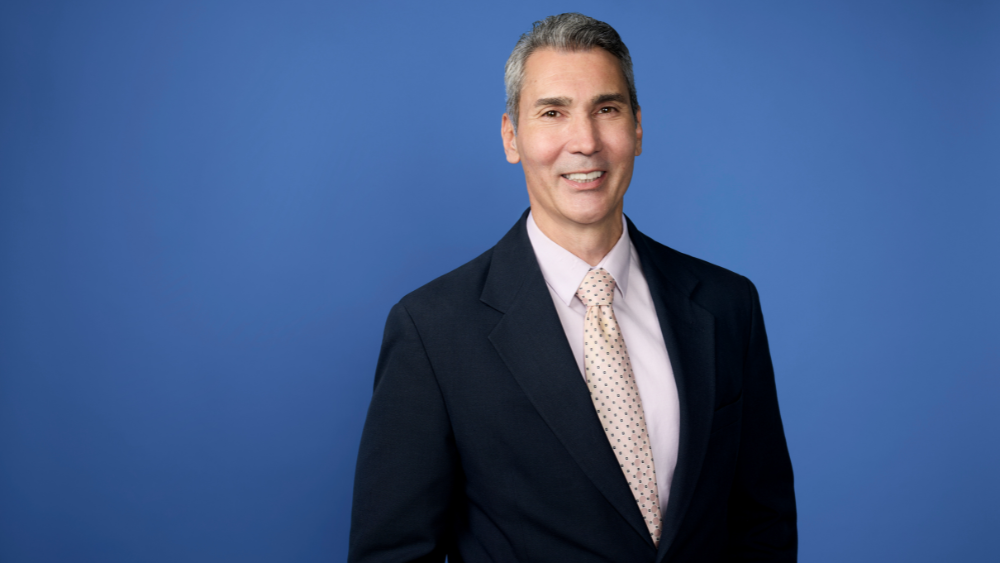Trump-targeted Fed Gov. Lisa Cook shows Americans what citizenship is about
Georgia native and Spelman College alum Lisa Cook doesn’t plan to exit her prestigious role as a Federal Reserve Board governor without a fight.
Even though President Donald Trump told her she was fired “with cause” for alleged mortgage fraud, Cook, an economist who received her Ph.D. from University of California Berkeley, wants her day in court.
A judge will eventually decide whether Trump actually had cause or if the firing was nothing more than a political maneuver to force a member off the central bank for refusing to bend to his will on lowering interest rates.
Her defiance, however, reflects critical attributes that make up the DNA of the American citizen: upholding the rule of law and standing up to authority.
Not long after the Cook firing, the Trump administration dismissed new Centers for Disease Control and Prevention Director Susan Monarez just a month after her Senate confirmation, but she also contested her firing.
Amid this chaos, I have been thinking about what the citizen’s role is in American society today as we live through a time of deep division, mistrust and polarity where some citizens feel afraid and helpless. The question is, what are we supposed to do, and can we get to a better place, especially when basic rights are at stake?
Presidential edicts resemble the type of behavior the Founders opposed
When the Founding Fathers signed the Declaration of Independence, defying the British monarchy and defending Americans’ rights to “life, liberty and the pursuit of happiness,” they created a road map that has guided the country in times of tumult and movements that took on oppressive laws.
Think about the abolition, temperance, suffragist, Civil Rights and Tea Party movements over the last two centuries that sought to rectify government overreach or the denial of equal rights to all citizens.
First, let’s set the stage.
The United States is going through a period today where the chief executive is effectively ruling by fiat, sometimes in direct defiance of what the U.S. Constitution says.
Yes, President Donald Trump is the legally elected commander-in-chief, affirmed by most voters and a majority of the states via the Electoral College in the 2024 election.
But in the first eight months of his second term, Trump has issued a number of executive orders (196 as of Aug. 20, according to the American Presidency Project) exceeding the average of any president before him.
He has unleashed an aggressive deportation effort executed by masked federal agents who have regularly and forcibly targeted people without criminal records.
He has ordered the National Guard to patrol cities such as Los Angeles and Washington, D.C., under the excuse of crime prevention with the possibility that other cities, including Atlanta, might be next.
Trump is seeking to remove any material he finds ideologically unacceptable from cultural institutions such as the Smithsonian.
He slashed federal jobs in key agencies such as the Atlanta-based CDC, a protector of the nation’s health.
In spite of a constitutionally designated process that does not involve the president, Trump signed an executive order to eliminate birthright citizenship even though it appears in the 14th Amendment.
Recently, he signed an order banning the burning of American flags despite a U.S. Supreme Court decision affirming that flag-burning, even though offensive to many citizens, is constitutionally protected speech.
If you have read your copy of the Declaration of Independence lately, this litany of grievances feels like the complaints the Founders leveled against King George III.
Citizenship is standing up to bullies and extending friendship to others
However, I am not arguing for secession or rebellion. Rather this is a plea for citizens to embrace the power of their citizenship. And many have, by way of protests, attending congressional town hall meetings (when they happen), writing letters to the editor and/or voting.
One key element we need more of, however, is the opportunity to connect with each other locally in meaningful ways in conversations that reject violence, dehumanization and the imposition of one’s will against one’s neighbors.
It’s also a call to build bridges with people holding different views and coming from diverse backgrounds. Americans have a history of sorting themselves ideologically, socioeconomically and demographically, and the political rhetoric makes it safer to stick to one’s own tribe, so to speak.
But “We the People” cannot be sustained if Americans reject the pluralism that makes it lawful, acceptable and, frankly, expected that we can disagree with each other without losing our jobs, going to prison or being effectively “canceled.”
It is difficult when the extremes on social media promote rage over clarity: the photo of the smiling MAGA supporters wearing Alligator Alcatraz T-shirts or the person demanding that Trump supporters unfriend them.
Sadly, the politics of today have caused many Americans to tune out or to feel like they are stuck watching a frantic, down-to-the-wire pingpong match where each player promises that America will be worse off if they lose.
One relative recently told me: “I don’t know what to believe anymore.”
And that’s a problem. The United States of America, which just celebrated its 249th birthday, was founded on the ideals that an “imperfect union” creates opportunity for all Americans — not just those whose preferred candidates win political office.
Citizenship means sustaining, upholding and challenging society. Sometimes it means standing up to bullies. Other times, it means extending a hand of friendship even when it is hard.
U.S. history suffers from many warts, but American ideals have stood the test of time.
Those ideals will only endure if citizens choose to put them into practice.
David Plazas is the AJC’s opinion editor. Email him at david.plazas@ajc.com.



